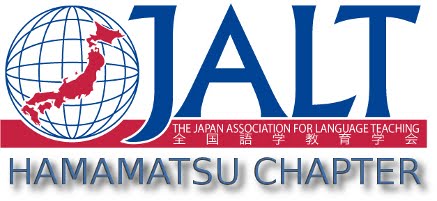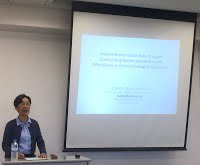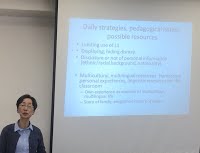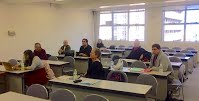In her presentation (the final one for the Hamamatsu chapter of JALT), Professor Kusaka presented select examples from stories co-constructed with her in interviews conducted over a period of three years with five other Japanese-American university teachers positioned by dominant discourses in which native speaker (NS) is a code word for White (Kubota & Fujimoto, 2013). In addition, how tenets of nihonjinron (Befu, 2001) impact them as TESOL professionals was explored. We noticed a definite evolution in how the teachers came to view themselves in Japan, but a lot less so in terms of how society regarded them. For example, there were some familiar refrains. When "Sarah" couldn't speak Japanese, some were shocked. “Why don’t you speak Japanese? It’s in your blood,” said one otherwise educated Japanese man. In the case of "Teresa, " she refused to use any Japanese (target language only) in the classroom in spite of her (basic) knowledge of Japanese. She explained in detail who she was and where she came from because students were not satisfied with her “I’m American” and that’s it. Some students could not and would not believe she wasn't Japanese. Later, as she evolved and became more comfortable, she became content referring to herself as Teresa from the USA. All in all, in a very easy give and take style, Prof. Kusaka reinforced that discourse can be (and is) limited by various societal constraints. |
Meeting Minutes > 2016 Meeting Minutes >



